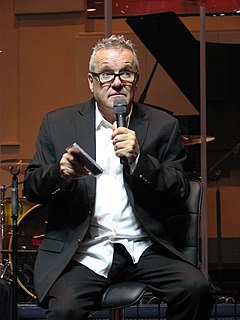A Quote by Paul Washer
The question is not, "Do you know you are a sinner?" the question is this, "As you have heard me preach the Gospel, has God so worked in your life that the sin you once loved you now hate?"
Related Quotes
Now I wonder whether I have sufficiently realized that during all this time God has been trying to find me, to know me, and to love me. The question is not 'How am I to find God?' but 'How am I to let myself be found by him?' The question is not 'How am I to love God?' but 'How am I to let myself be loved by God?'
The question itself [of UFOs] I think is legitimate. It's interesting, it's fascinating. It's mythic in scale and one of the grand questions. It's like the God question or, you know, the meaning-of-life question. It's one of those, on that scale. So you'd have to be made of wood not to be interested and, you know, have they come here? Are they up there?
The cliché, God hates the sin but love the sinner, is false on the face of it and should be abandoned. Fourteen times in the first fifty Psalms alone, we are told that God hates the sinner, His wrath is on the liar, and so forth. In the Bible, the wrath of God rests both on the sin (Romans 1:18ff) and on the sinner (John 3:36).
I've heard plenty of Christians try to answer the why question by going back to the what. "You have to believe because Jesus is the Son of God." But that's answering the why with more what. Increasingly we live in a time in which you can't avoid the why question. Just giving the what (for example, a vivid gospel presentation) worked in the days when the cultural institutions created an environment in which Christianity just felt true or at least honorable. But in a post-Christendom society, in the marketplace of ideas, you have to explain why this is true, or people will just dismiss it.
The modern-day gospel says, 'God loves you and has a wonderful plan for your life. Therefore, follow these steps, and you can be saved.' Meanwhile, the biblical gospel says, 'You are an enemy of God, dead in your sin, & in your present state of rebellion, you are not even able to see that you need life, much less to cause yourself to come to life. Therefore, you are radically dependent on God to do something in your life that you could never do.
The call of God is to preach the gospel--namely, the reality of redemption in our Lord Jesus Christ. The one passion of Paul's life was to proclaim the gospel of God. He welcomed heartbreak, disillusionment , and tribulation for only one reason--these things kept him unmovable in his devotion to the gospel of God.




































